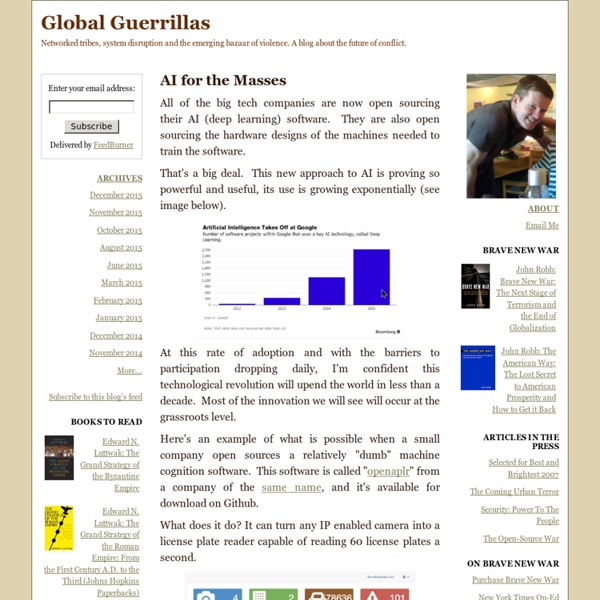Secrecy News (Federation of American Scientists)
The number of chronically homeless persons in the U.S. dropped from more than 120,000 in 2008 to around 84,000 in 2014, a new report from the Congressional Research Service notes. The federal government has undertaken to end chronic homelessness by 2017. “One of the reasons that federal programs have devoted resources to ending chronic homelessness […] Read More The national census in 2020 will be the first to rely primarily on the Internet for collecting census data, thereby creating new avenues for fraud and disruption. A new report from the JASON scientific advisory panel describes the problem and outlines some solutions.
INSA Cyber Intelligence Blog
Contributors All blog contributors are members of the Cyber Intelligence Task Force, though some guest submissions may be solicited by task force members. If you would be interested in becoming a contributor or submitting a guest post, INSA encourages you to consider an individual INSA membership. An annual membership is only $20 for students, and $40 for professionals in government and academia. In addition to becoming a blog contributor, INSA membership includes benefits such as access to INSA events and members-only publications. INSA public relations and communications staff review all submissions for suitability and to ensure they align with the blog’s mission.
CI Worldwide
août 27th, 2015 Posted in Africa, Europe, France, North Africa | Comments Off Le livre 100 missions d”Intelligence Economique d’Inès Elhias et Nicolas Moinet est paru aux éditions l’Harmattan. Ce livre qui sera très utile aux ETI, PME et PMI, présente 100 missions diversifiées d’Intelligence Economique. suit ensuite un chapitre présentant quelques clés pour aborder l’Intelligence Economique, suivi par une série d’Interview (Philippe Clerc, Christian Harbulot, Thomas Ollivier, Sandra Martin, Bernard Carayon, Aline Hurault, Henri Dou). Une dernière partie présente le Master d’Intelligence Economique de l’Université de Poitiers.
Ponemon
We are pleased to let you know about our latest study on intelligence sharing. The Second Annual Study on Exchanging Cyber Threat Intelligence: There Has to Be a Better Way reveals interesting trends in how organizations are participating in initiatives or programs for exchanging threat intelligence with peers, industry groups, IT vendors and government. According to the 692 IT and IT security practitioners surveyed, there is more recognition that the exchange of threat intelligence can improve an organization’s security posture and situational awareness. However, concerns about trust in the sources of intelligence and timeliness of the information continue to be a deterrent to participation in such initiatives.
Best Defense
Click Here to Subscribe to FP Premium for 50% Off An Over $400 a Year Value for Just $4.99 per month! In addition to the benefits of FP All Access » (unlimited articles and newsletters, custom alerts and access to the digital edition of the magazine — $59.99 a year value), that have won worldwide acclaim and an audience of millions for Foreign Policy, FP Premium subscribers receive:
The Director's Desk
Those who know me, even in passing, generally realize that I'm interested in technology. Probably because this is so well known, I am often asked to serve on advisory groups, committees, and such when the issue at hand is technological. In reality, my reputation exceeds me, but nevertheless, it has stuck. This week, two meetings on matters technological caused me to think. The first was a rather informal get together at the Lancaster County Emergency Operations Center. This one was intended as a demonstration for those in attendance of some of the web-based applications we have, both public and internal, that assist in managing critical incidents.
War on the Rocks
Sign in to War on the Rocks or create an account Sign in with Facebook Sign in with Google Sign in with Twitter Sign in with LinkedIn Sign in or sign up with email Login
Software Engineering Institute: Carnegie Mellon
Posted on by Troy Townsend in Cyber-physical Systems The majority of research in cyber security focuses on incident response or network defense, either trying to keep the bad guys out or facilitating the isolation and clean-up when a computer is compromised. It's hard to find a technology website that's not touting articles on fielding better firewalls, patching operating systems, updating anti-virus signatures, and a slew of other technologies to help detect or block malicious actors from getting on your network. What's missing from this picture is a proactive understanding of who the threats are and how they intend to use the cyber domain to get what they want. Earlier this year, representatives from the government approached the SEI Emerging Technology Centerabout conducting research to assess the state of the practice of cyber intelligence.
Platform for WKSH8533A: Geospatial Tools for Nonproliferation Analysis (1 Credit)
Welcome! For the first day of class, please complete these tasks. Here is the syllabus for your review. You will find these recommended readings helpful as well. Frank V.
Sources And Methods: New Wikipedia Articles Of Interest To Intelligence Professionals
Despite its occasional weaknesses, I really like Wikipedia. Others (perhaps unnecessarily) worry about an encyclopedia that is editable by anyone. Whether you like it or not, however, it is undeniably the tertiary source of first resort for most of the planet. One of the things that has always bothered me about it, though, is the generally poor coverage of issues related to intelligence. From intelligence history to intelligence theory, Wikipedia, in my opinion, needs help.That is why, instead of traditional writing assignments in some of my classes, I like to task students to write Wikipedia articles about intelligence issues that have not already been covered.
Intel News
Selected Wisdom



